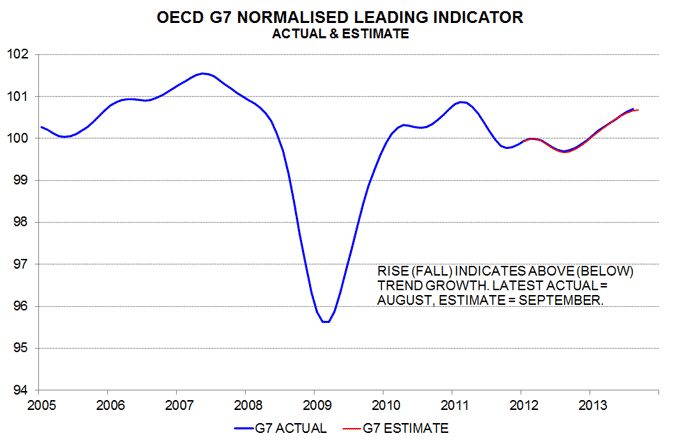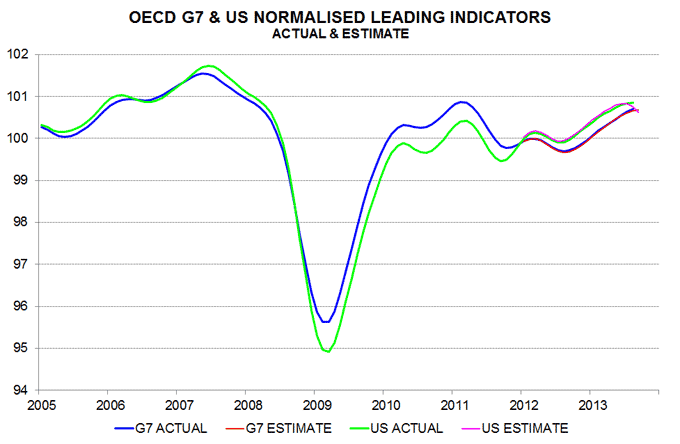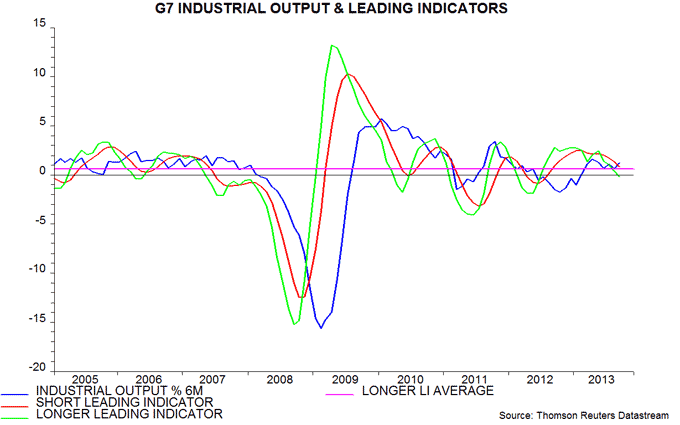OECD leading indicators may signal global growth peak
The OECD’s leading indicator indices are widely monitored and influence investor perceptions of the state of the global economy. September data to be released next week* may signal a loss of growth momentum; this could cause investors to become more cautious about equity market prospects.
The OECD’s indices are presented in “normalised” form so that a stable reading indicates economic growth at trend. The key G7 index has been rising since late 2012, suggesting future above-trend expansion – the OECD claims that its indicators lead by six to nine months. However, an attempt here to replicate the OECD’s calculations yields an estimate that the G7 indicator stabilised in September – see first chart. If confirmed, this would raise doubts about the current consensus view that global growth will be significantly stronger in 2014 than 2013.
The estimated stabilisation of the G7 indicator in September reflects weakness in the US component – second chart. The latter may be picking up a transitory negative impact from the recent government shutdown and uncertainty about whether the debt ceiling would be raised. This suggests waiting for an October reading released in early December before concluding that US / global growth prospects are deteriorating.
The OECD indices are used here to construct short and longer-term leading indicators of G7 industrial output growth. If the September OECD estimate proves correct, both indicators will decline notably, with the longer-term measure crossing below its historical average – third chart**. Such a crossover would cause the investment rule described in a previous post to switch from equities to cash.
*Tuesday 12 November.
**The last indicator readings in the chart are estimates.




Reader Comments